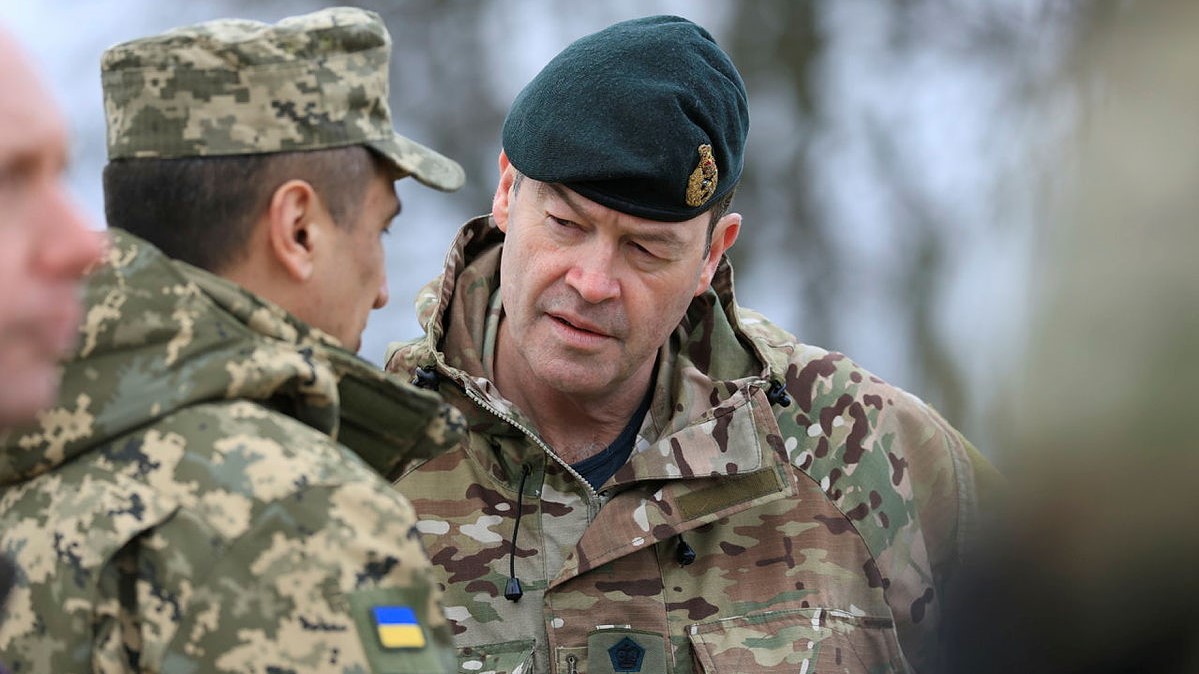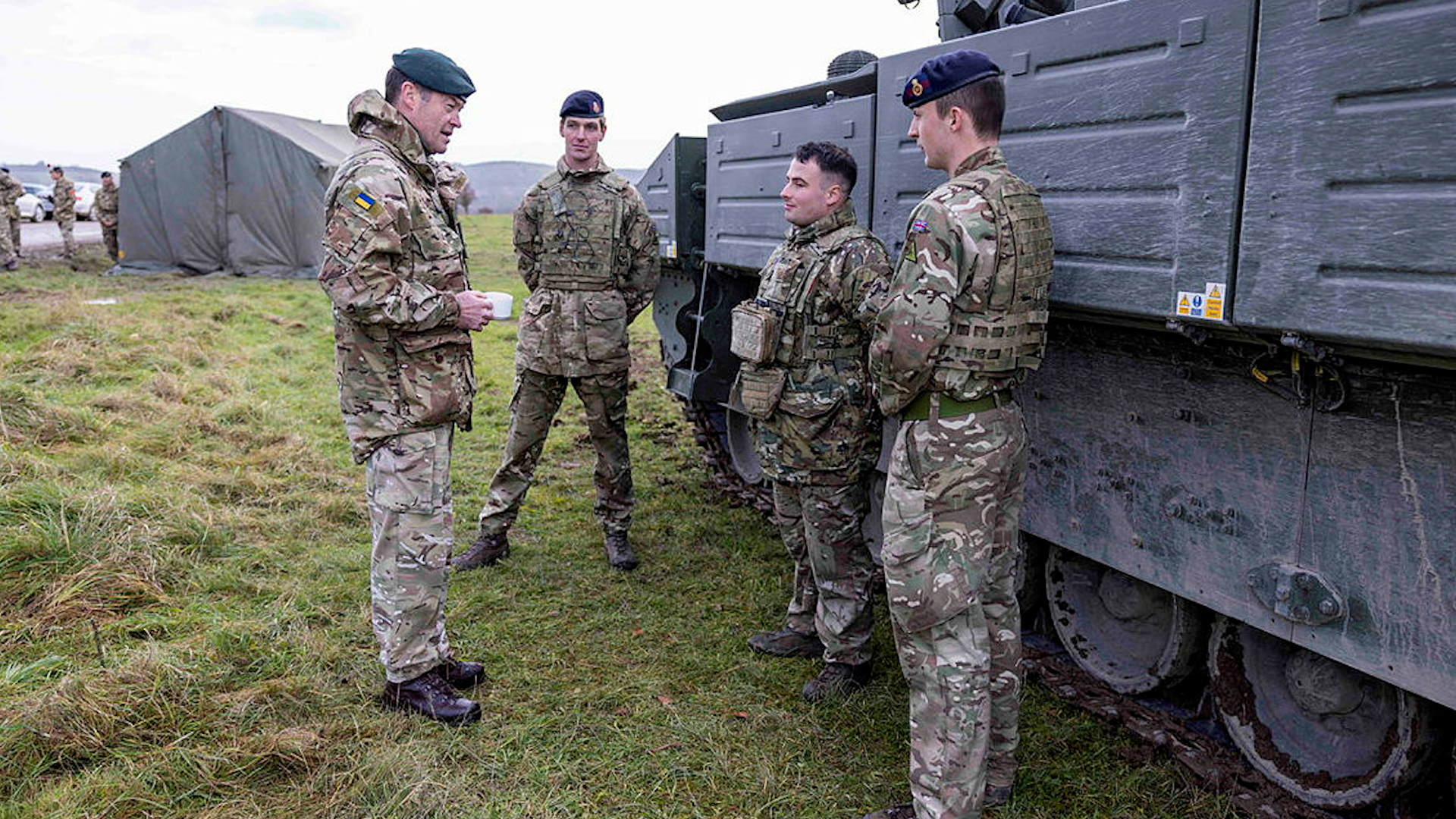
British citizens should be trained for potential land war, head of the Army warns

The head of the British Army has said Britain should train and equip a "citizen army" to prepare the country for a potential land war.
General Sir Patrick Sanders, the outgoing Chief of the General Staff, said increasing Army numbers ahead of a potential conflict would need to be a "whole-of-nation undertaking".
However, Gen Sir Patrick said even a mobilisation of this scale might not be enough, highlighting how the UK's allies in eastern and northern Europe were "laying the foundations for national mobilisation".
Gen Sir Patrick was speaking at the International Armoured Vehicles conference in west London.
His comments are being widely read as a potential warning that British men and women should be ready for a call-up to the Armed Forces if Nato ever goes to war with Russia.
But a Ministry of Defence spokesperson said: "The British military has a proud tradition of being a voluntary force and there is absolutely no suggestion of a return to conscription.
"More than £50bn is being invested in our Armed Forces this year alone to enable the UK to tackle threats wherever they occur, whether responding to Houthi attacks on shipping in the Red Sea, playing a leading role in Nato or by our enduring commitment to Ukraine in their fight against Russia's illegal invasion."
'This is our 1937 moment'
Gen Sir Patrick has pushed for greater readiness of Britain's Armed Forces before.
In 2022, months after Russian President Vladimir Putin invaded Ukraine, the Army chief said: "This is our 1937 moment."
Comparing the situation to the build-up to the Second World War in 1937, the Chief of the General Staff said Britain must be prepared to "act rapidly" to ensure it was not drawn into a full-scale conflict through its failure to contain Russian expansionism.
Gen Sir Patrick, in his latest speech, added that Britain could not rely on its naval and air power, arguing: "We must be able to credibly fight and win wars on land.
"We need an Army designed to expand rapidly to enable the first echelon, resource the second echelon and train and equip the citizen army that must follow.
"Within the next three years it must be credible to talk of a British Army of 120,000, folding in our reserve and strategic reserve. But this is not enough.
"Our friends in eastern and northern Europe, who feel the proximity of the Russian threat more acutely, are already acting prudently, laying the foundations for national mobilisation.
"As the chairman of the Nato Military Committee warned just last week [Admiral Rob Bauer], and as the Swedish government has done, preparing Sweden for entry to Nato, taking preparatory steps to enable placing our societies on a war footing when needed are now not merely desirable but essential.
"We will not be immune and as the pre-war generation we must similarly prepare - and that is a whole-of-nation undertaking.
"Ukraine brutally illustrates that regular armies start wars. Citizen armies win them."

More backing for Army
Gen Sir Patrick also called for more backing for the Army, saying those serving "rightly want the equipment that enables them to deliver lethal capability".
The CGS has been a vocal critic of cuts to troop numbers and military spending.
In 2022, he warned that soldiers were being forced to rely on ageing kit and equipment from the 1980s.
He made the comments during an ABF The Soldiers' Charity's General Talk podcast, during a discussion about the future of the British Army.
Gen Sir Patrick said British soldiers lacked drones, artillery and ammunition, and the war in Ukraine had highlighted "gaps in our inventory".
He will be replaced as CGS in June by General Sir Roly Walker, an announcement that followed reports he was being forced out in response to his outspoken comments.
The Chief of the Defence Staff, Admiral Sir Tony Radakin, denied the claim when asked by MPs about the reports in July.
Gen Sir Patrick has not been alone in his criticism.
Last week, a former chief of the general staff warned against allowing the Army to be shrunk further.
General Lord Dannatt said the UK risked a repeat of the 1930s unless more is invested in its Armed Forces.
He hit out at the shrinking size of the Army, which he said had been reduced from 102,000 in 2006 to 74,000 today and was still "falling fast".
Gen Lord Dannatt drew parallels with the 1930s when the "woeful" state of the UK's Armed Forces failed to deter Adolf Hitler, saying there was a serious danger of history repeating itself.
But Defence Secretary Grant Shapps insisted the size of the Army would not dip below 73,000 regular soldiers under the Conservatives, plus the reserves.









